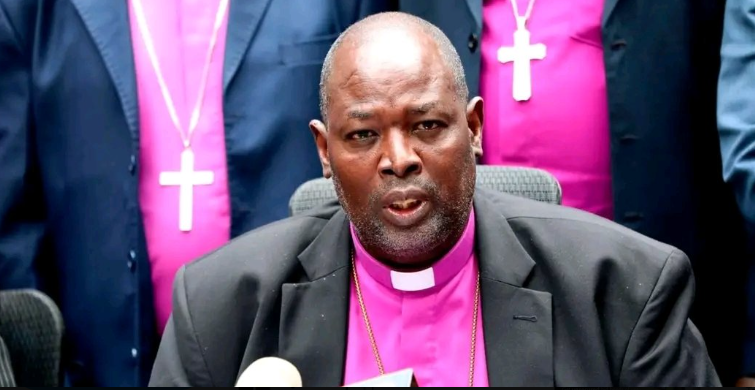

Anglican Church of Kenya Archbishop Jackson Ole Sapit has maintained that politicians should not be allowed on the pulpit.
Speaking with Citizen TV on Wednesday, Ole Sapit said churches should be defined as places of worship and prayer, not political utterances.
"That space is for prayers, repentance, humility and giving hope. What has happened of late is that the space has been claimed by everybody in the name of either greeting the congregation when they visit, and in addition it becomes a place for giving other communications," he said.
"It becomes a place where political conversation is generated and sometimes those conversations get confrontational, demeaning and we lose the essence of that space."
Ole Sapit advised the church to ensure that the essence of the place is not degraded.
"It is a space we have to protect. Everybody is welcome to the church but allow those who have been given the responsibility to lead the worship be the ones to do that," he added.
Ole Sapit went on to state that churches will continue to be built whether politicians withdraw their donations and harambees or not.
“The church has always been built by worshipers because God’s resources are there and God will call the builders in his timing like Nehemiah,” he said.
Nehemiah was a Jewish leader who served as the cupbearer to the Persian king, Artaxerxes and returned to Jerusalem to rebuild the walls.
At the same time, Rev Otieno Agola said that in as much as politicians are welcome to church, they should not turn them into political arenas.
"All politicians are welcome to church and they can come and worship as any other person. But changing that house of worship into a political arena where you attack opponents and show off with large sums of money is wrong," he said.
He advised politicians to respect the rules of the houses of worship.
Archbishop Sapit had earlier barred opposition politicians from speaking at St Stephen’s Cathedral in Nairobi and extended the restriction to all ACK churches nationwide.
On Monday, the National Council of Churches of Kenya (NCCK) also banned political activities in its member churches, stopping politicians from addressing congregants or having their donations publicly announced.










